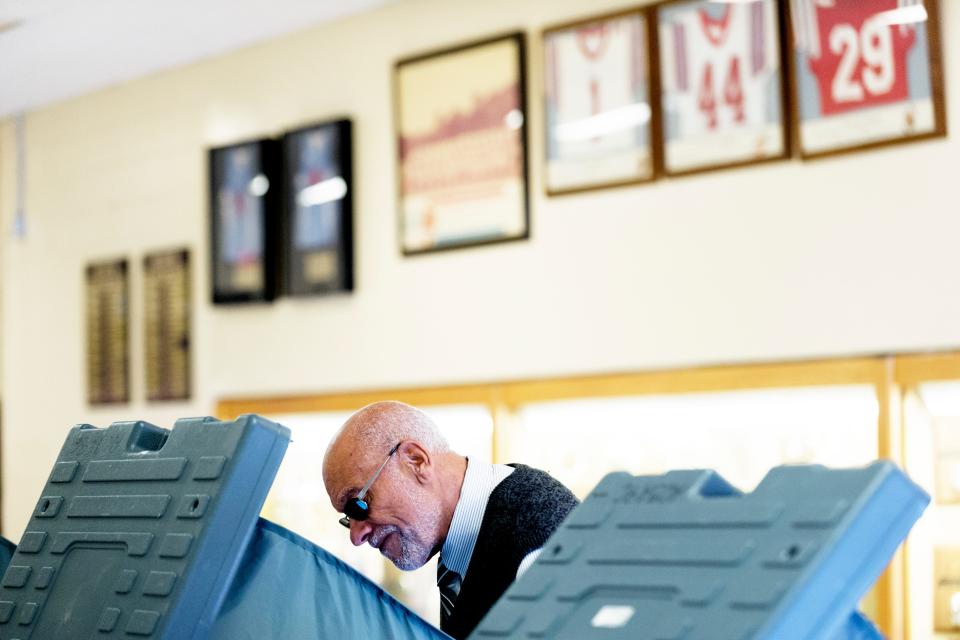When serving in the House, Bob Booker put Knox County and East Tennessee first | Opinion
I actually served with Bob Booker in the state House of Representatives for four years (1968 to 1972), which was a great privilege.
I was first elected in 1968 at age 23. Bob had completed his first term and was one of six African Americans in the House at that time and the first from Knox County. He was elected as a Democrat but voted in a very independent manner, placing Knox County and East Tennessee first. Retired attorney Dick Krieg, then 22, was also elected to the House that year. We are the only two Knox House members still living from that 1968 election, and both senators ‒ Ben Atchley and Fred Berry ‒ are gone as well.

When the House convened in January 1969, there were 49 Democrats and 49 Republicans with one independent, J.P. Kimbrell from Lawrence County in Middle Tennessee. No one knew how Kimbrell might vote for House speaker as it was thought he would be the deciding vote, which would then organize the whole House. Buford Ellington was governor then. The suspense was high. It was assumed incorrectly that all Republicans and Democrats would vote for the nominee of their own party.
However, when the roll was called in alphabetical order, Booker was among the first 10 to vote. He voted for Bill Jenkins from Rogersville, who was the GOP nominee over Pat Lynch, who was the Democratic nominee. You could have heard a pin drop with the impact his single vote created. Booker said later he thought Jenkins would be more fair minded to East Tennessee and Knox County.
Jenkins was the first Republican speaker of the House since the Civil War. He went on to be commissioner of conservation, Tennessee Valley Authority Board director, a judge and then a member of Congress. He still lives in Rogersville.
This shows Booker was a man of his own and not obligated to other factors. Booker always said he never cut a deal with Jenkins, and Jenkins confirms that was true. Jenkins said he had spoken to Booker and asked for his support but Booker never confirmed how he would vote. It turned out that the House Democrats took Booker's vote for granted. Booker was never promised a committee chairmanship or any inducement to vote for Jenkins. He did what he thought was best for Knox County.
I stayed in touch with Bob for years between 1968 and this year. He always offered good advice and history. He was helpful in the creation of the civilian review board for our city.
He wrote an excellent book, "The Heat of a Red Summer: Race Mixing, Race Rioting in 1919 Knoxville," which described the indictment and ultimate execution of Maurice Mays for the murder of a white woman. Mays was African American and the jury was all white. Booker clearly outlined how Mayes never received a fair trial, and he was right. Since then Knoxville City Council has unanimously urged an exoneration by the governor posthumously, but Gov. Bill Lee has not acted. I hope Lee seeks to undo this injustice and stain on our judicial system from that era by exonerating or even pardoning Mays in recognition of the accuracy of what Booker researched and wrote.
Victor Ashe is a former Knoxville mayor and former ambassador to Poland. He is a columnist for Shopper News.
This article originally appeared on Knoxville News Sentinel: Opinion: In the state legislature, Bob Booker put Knox County first

